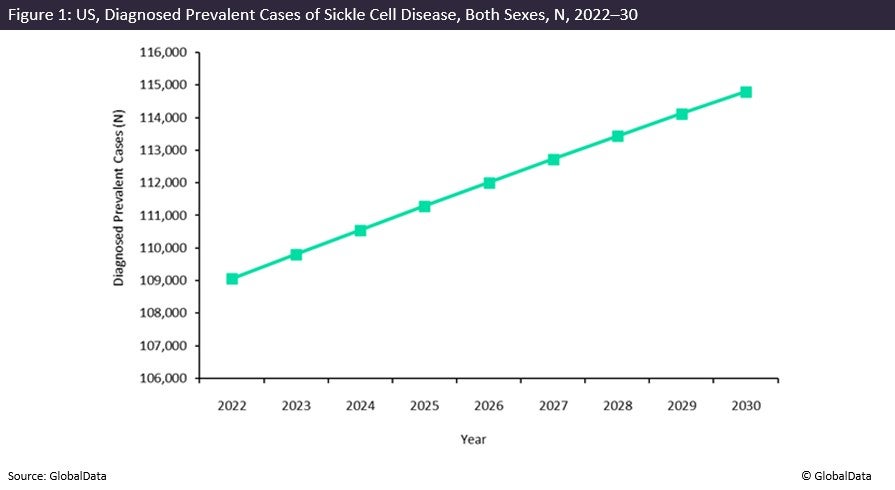In January 2022, the American Red Cross (ARC) issued its first blood crisis, citing an extreme scarcity of blood donations due to the Covid-19 pandemic. According to the ARC, donations have declined 10% since March 2020, including a 62% drop in blood drives at high schools and colleges. This is a major detriment to the US blood supply, as the ARC supplies 40% of the blood products needed and has been reduced to supplying only one in four hospital requests. GlobalData epidemiologists expect that the impacts of the blood shortage will likely result in poorer patient outcomes, especially in those affected by blood disorders like sickle cell disease (SCD).
SCD is an inherited blood disorder, in which sickle-cell traits come from each parent to the child.SCD is so named for the effect the disease has on red blood cells. The hallmark trait of sickle-cell disease is that, instead of the round shape of healthy cells, some red blood cells form into crescent or sickle shapes. These sickle cells can form blood clots and block blood vessels, increasing the risk for deep-vein thrombosis, chronic pain, and stroke.

Access deeper industry intelligence
Experience unmatched clarity with a single platform that combines unique data, AI, and human expertise.
A fundamental treatment of sickle-cell anaemia is through red blood cell transfusions. The need for transfusions can vary between patients but they can be a lifelong treatment option. These patients are heavily impacted by the ARC blood shortage, as they can be left waiting for available blood as they accumulate the damage of oxygen deprivation. This is further complicated by the limiting factor of blood type: transfusion recipients can only accept the blood of their own type or one with fewer antigens.
In the US, GlobalData epidemiologists forecast that diagnosed prevalent cases of SCD will increase from 109,509 in 2022 to 114,800 in 2030, primarily driven by changes in the underlying population (as shown in Figure 1). However, should the blood crisis continue, an increase in severe patient outcomes and mortality will likely be observed and could lead to diagnosed prevalent cases falling below current forecast estimates. These changes, however, may be temporary as the impacts of the Covid-19 pandemic lessen over time and blood donation levels return to pre-pandemic levels.
There is an urgent need for blood donations in the wake of the Covid-19 pandemic. Because blood cannot be artificially produced or stored long-term, there is a constant requirement for donations. Each red blood cell transfusion requires three units of blood and a car accident victim can require up to 100 units. The ARC specifically requests type O-negative donors, which is the most widely acceptable blood type. It is essential that blood drives and public cooperation are re-established as Covid-19 cases decrease and SCD cases steadily increase.


US Tariffs are shifting - will you react or anticipate?
Don’t let policy changes catch you off guard. Stay proactive with real-time data and expert analysis.
By GlobalData

